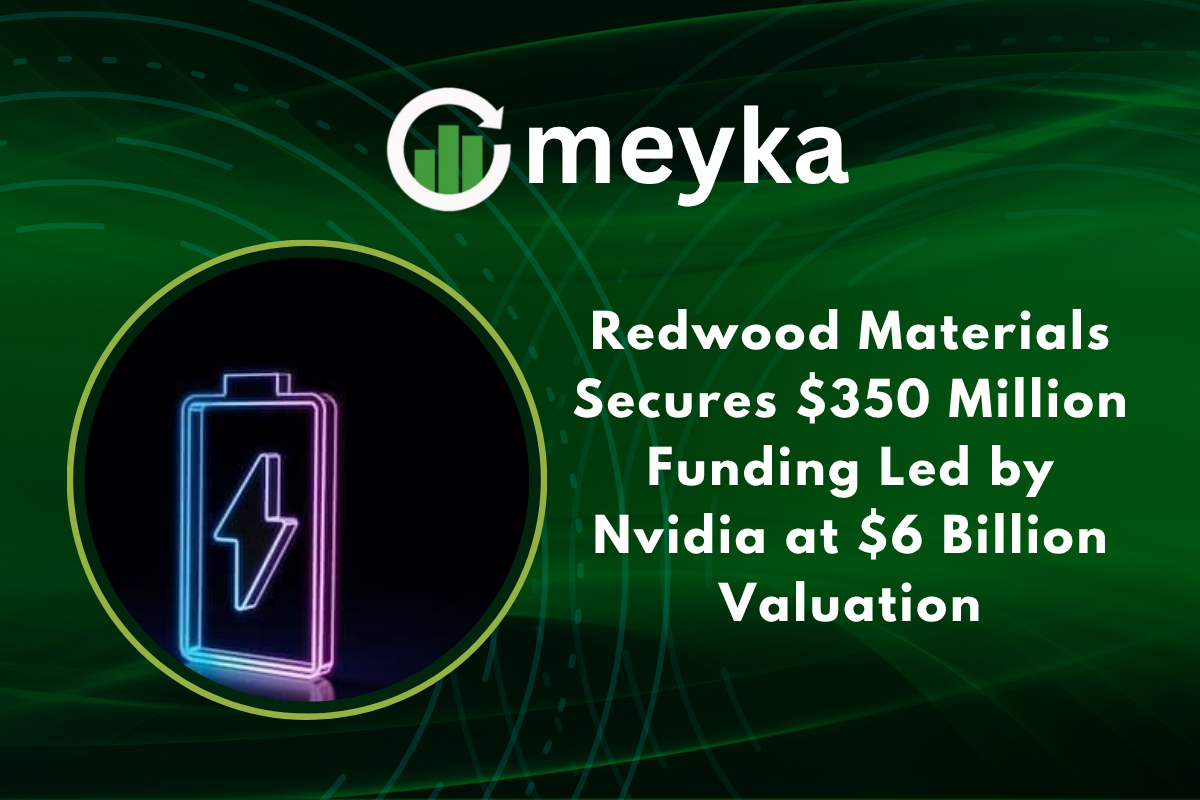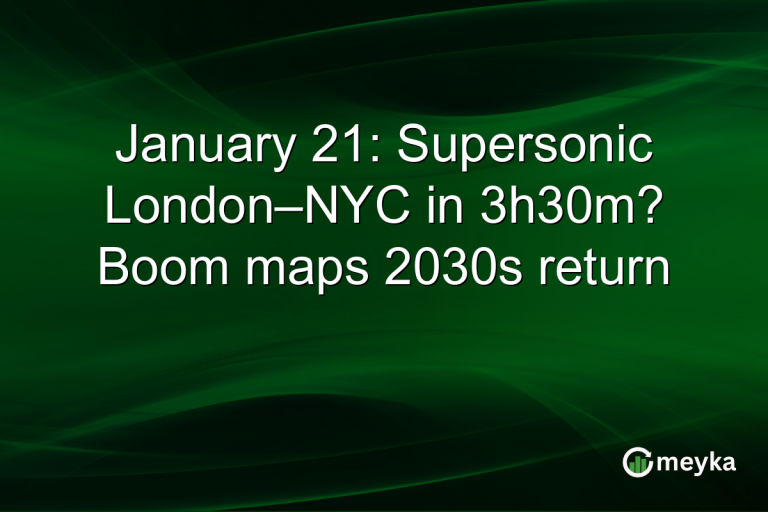Redwood Materials Secures $350 Million Funding Led by Nvidia at $6 Billion Valuation
Redwood Materials announced a new funding round worth $350 million, led by Nvidia. The deal pushes the company’s value to about $6 billion. This is a big vote of confidence for battery recycling and clean technology. It also links advanced AI computing to sustainable materials recovery.
Redwood Materials Reaches $6 Billion Valuation with Nvidia’s Backing
The latest round was led by Nvidia, with participation from other strategic backers such as Eclipse Ventures and existing investors. The funding follows strong demand for recycled battery materials from automakers and electronics firms. Redwood Materials said the investment will speed up its growth and help scale plants and research.
Who announced the news? The company posted the update on its official account and shared the announcement on X
Industry outlets, including Reuters and Bloomberg, covered the round in depth.
How Nvidia’s Investment Strengthens Redwood Materials’ Mission
Nvidia invests in compute and AI. Its lead role shows the link between AI and material science. AI helps sort materials, predict yields, and optimize processes. Nvidia’s chips and platforms can speed those tasks.
Why would Nvidia invest in recycling? Nvidia needs a stable supply of critical metals for servers and data centers. Investing in Redwood Materials helps secure recycled materials while supporting a cleaner supply chain.
A Forbes post highlighted the strategic nature of the deal:
What Makes Redwood Materials a Key Player in the Clean Energy Ecosystem
Redwood Materials builds systems to recover metals from used batteries and electronics. The firm focuses on lithium, nickel, cobalt, and copper extraction. It aims to close the loop, turning waste into new battery materials.
The company works with major partners. Reports say Panasonic, Ford, and Tesla have existing or reported supply links and collaborations. That network helps Redwood secure feedstock and gives automakers a local recycled source.
What is a circular supply chain? It means materials are reused. Instead of mining new ore, batteries are refurbished, and metals are recovered. This cuts emissions and reduces reliance on distant mines.
Why the $350 Million Funding Round Matters for the Future of Clean Tech
Why is this funding round crucial for the energy transition?
It gives Redwood Materials the capital to build new plants and R&D. That can increase the output of recycled materials at scale. It also signals investor confidence in battery recycling as a business.
What opportunities does this open for the U.S. battery recycling industry?
More funding helps build domestic capacity in Nevada and South Carolina, creating jobs and shortening supply chains for EV makers. It strengthens America’s position in the clean tech supply chain.
This round also fuels AI-powered recycling innovation, where algorithms improve sorting accuracy and recovery rates. That can lift margins and lower costs.
Redwood Materials’ Expansion and Future Roadmap
The company is expanding facilities in Nevada and South Carolina, with plans to add processing lines and R&D centers.
The new funds will go to facility scale-up, research in material recovery, and integration of AI systems that track material quality in real time.
How will the money be used? Funds are earmarked for production scale, automation, and research. The goal is to increase capacity, lower cost per ton, and improve recovery percentages for critical metals.
How AI and Material Science Are Merging at Redwood Materials
AI helps in many steps of recycling. Machine vision can sort battery components faster. Predictive models forecast material recovery rates. Optimization tools tune chemical processes to boost yield.
Nvidia’s AI platforms can run those models faster. That speeds testing of new recovery methods, and shortens the time to commercial deployment. The investment links compute power to circular manufacturing.
Can AI improve metal recovery? Yes, AI makes processes more precise and reduces waste. It also helps designers choose materials that are easier to recycle.
Market Impact and Investor Confidence in Redwood Materials
A $6 billion valuation places Redwood Materials among the top clean tech startups focused on circular economy solutions. The round validates battery recycling as a critical market. Investors see a path from waste streams to new revenue.
Comparisons matter. This deal positions Redwood against other recycling startups and cleantech firms seeking to capture EV battery value. It also signals that private capital will back infrastructure that supports the green transition.
What does investor confidence mean for the sector? It can spur more projects, accelerate policy support, and attract skilled workers to domestic recycling plants.
Voices from the Industry
Analysts note the strategic link between data center needs and battery metals. One analyst said the funding shows that compute companies view material security as part of their long-term plan. Social media and industry outlets lit up with coverage after the announcement, reflecting broad market interest.
The company’s own post on X framed the round as a milestone for the circular economy, and media commentary highlighted Nvidia’s strategic role in marrying AI with materials science.
Conclusion: A Step Forward for Sustainable Innovation
This $350 million round, led by Nvidia, valuing Redwood Materials at $6 billion, is more than capital. It ties AI, industry, and recycling into one strategic push. The funding will help scale plants in Nevada and South Carolina, advance AI-driven material science, and reduce reliance on raw mining.
The deal shows that investors view battery recycling as a core part of the clean energy transition. Redwood Materials aims to build the systems that make EV batteries part of a circular economy. With Nvidia’s compute expertise and strong industrial partners, the company is set to speed the shift to sustainable manufacturing.
Why does this matter? Because a cleaner battery supply chain is a key piece of the global transition to electric transport and low-carbon infrastructure. The combination of capital, technology, and partnerships in this round marks a notable step toward that future.
FAQ’S
The firm aims to build a closed loop for EV and electronics materials, turning end-of-life products into feedstock for new batteries and components.
Nvidia’s backing supports lower emissions by promoting recycled metal use, and helps secure materials for AI and data center needs in a sustainable way.
Redwood aims to be a market leader. With strong partners and scale up capital, it could set industry standards for efficiency and supply reliability.
Disclaimer
The content shared by Meyka AI PTY LTD is solely for research and informational purposes. Meyka is not a financial advisory service, and the information provided should not be considered investment or trading advice.”






